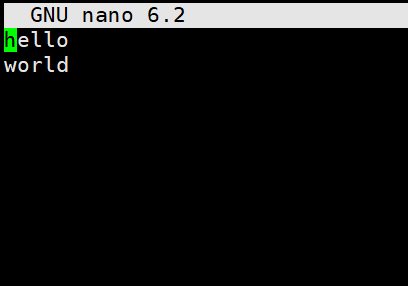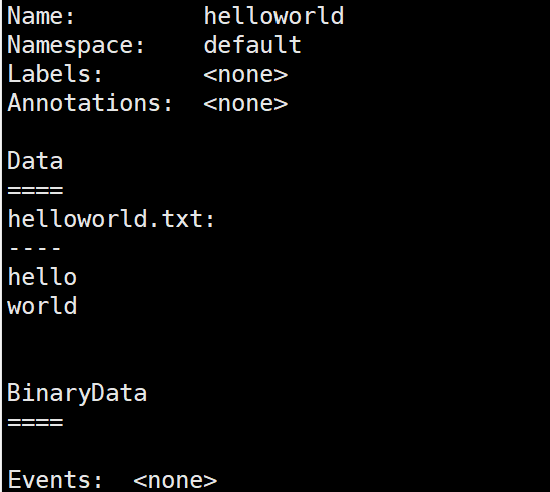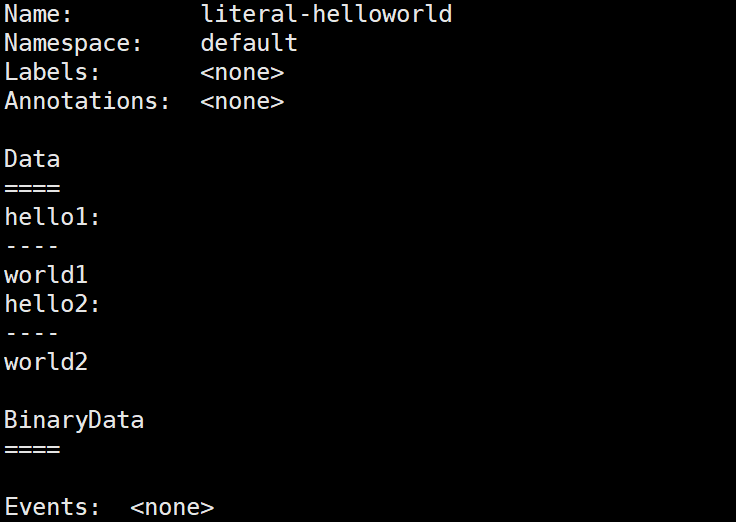内容纲要
概述
在我们的业务开发中,我们的应用或者服务需要很多配置,例如:数据库配置(连接url, port, connectionTimeout),redis配置,Spring框架配置等等,同时在不同环境也需要不同的配置。
k8s提供了ConfigMap资源对象为我们的应用提供了非敏感信息配置。
适用场景
ConfigMap的应用场景就是非敏感信息。
创建ConfigMap
创建ConfigMap的方式有很多种,但是我觉得最常用的方式应该是Yaml文件方式。
创建方式
- 基于普通文件
- 基于字面值
- 基于Yaml文件
基于普通文件
假设我们创建一个helloworld.txt,并在文件中输入hello world,如下图所示:

使用kubectl命令创建ConfigMap
kubectl create configmap helloworld --from-file=./helloworld.txt
kubectl describe cm/helloworld
基于字面值
kubectl create configmap literal-helloworld --from-literal=hello1=world1 --from-literal=hello2=world2
kubectl describe cm/literal-helloworld
基于Yaml文件
- 创建ConfigMap资源清单文件helloworld.yaml
kind: ConfigMap apiVersion: v1 metadata: name: common-config namespace: your_namespace data: TZ: Asia/Shanghai dbInitialSize: '16' dbMaxActive: '64' dbMaxWait: '60000' dbMinIdle: '16' - 在k8s中创建ConfigMap
kubectl applyl -f helloworld.yaml
ConfigMap的使用方式
- 环境变量方式
- Volume方式
环境变量方式
- env
- envFrom
环境变量的问题可能就是无法直接将ConfigMap中key对应的二进制Value注入到环境变量,一般需要将二进制value进行一次Base64编码。但是经过一次Base64编码后,应用可能无法直接使用这个Value,所以需要应用程序进行一次Base64解码。
env
deployment中引用刚才创建的literal-helloworld中的key和value。
apiVersion: apps/v1
kind: Deployment
metadata:
name: nginx
namespace: nginx
spec:
replicas: 2
selector:
matchLabels:
app: nginx
template:
metadata:
labels:
app: nginx
spec:
containers:
- image: nginx:1.14.0
ports:
- containerPort: 80
- env:
- name: hello
valueFrom:
configMapKeyRef:
key: hello1
name: literal-helloworldenvFrom
envFrom直接引用ConfigMap中的所有key-value,并且将所有key-value注入到容器环境变量中,在容器启动成功后,使用printenv可以查看所有的key-value
apiVersion: apps/v1
kind: Deployment
metadata:
labels:
app: nginx
name: nginx
namespace: default
spec:
replicas: 1
selector:
matchLabels:
app: nginx
template:
metadata:
labels:
app: nginx
spec:
containers:
- image: nginx:1.14.0
ports:
- containerPort: 80
name: nginx
envFrom:
- configMapRef:
name: literal-helloworldVolume 方式
Volume方式就是将ConfigMap挂在到容器的文件系统中。
apiVersion: apps/v1
kind: Deployment
metadata:
labels:
app: nginx
name: nginx
namespace: default
spec:
replicas: 1
selector:
matchLabels:
app: nginx
template:
metadata:
labels:
app: nginx
spec:
containers:
- image: nginx:1.14.0
ports:
- containerPort: 80
name: nginx
volumeMounts:
- name: literal-helloworld-volume
mountPath: /path/to/configmap/data
volumes:
- name: literal-helloworld-volume
configMap:
name: literal-helloworld